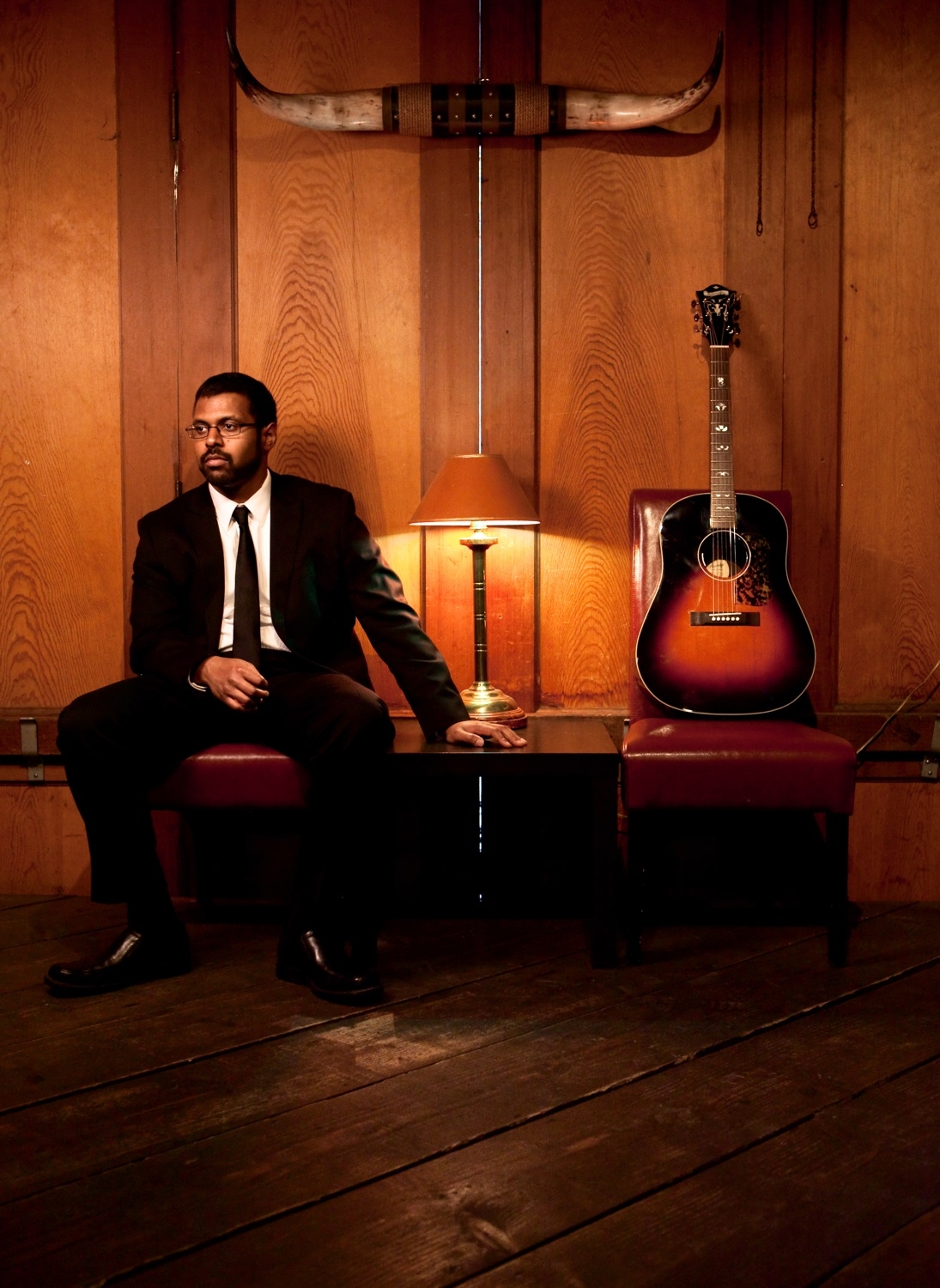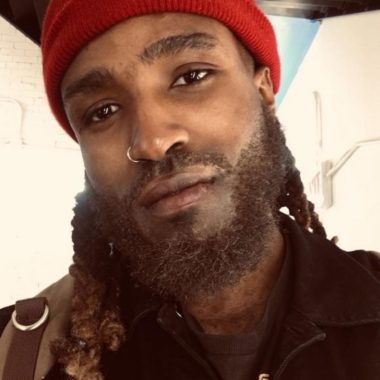Soulful, diverse and talented are the words I would use to describe Missouri native Bhi Bhiman. Shortly before the release of his latest album I’ll sleep when I’m famous, I spoke with the singer, producer, and songwriter about his musical origins, latest album, and inspirations. My interview with Bhi below:
Roderick Thomas: Bhi, thanks for speaking with me. Let’s have some music nerd talk.
Bhi Bhiman: Happy to have some music nerd talk [laughs].
RT: Where in Missouri are you from?
Bhi Bhiman: I’m actually from St. Louis.
RT: When did you know you wanted to make music?
Bhi Bhiman: Seven years old. My brother had taken guitar lessons, and when he stopped
playing the guitar, I picked it up and we (the guitar and I) became inseparable.
RT: You also have a great singing voice, when did you realize you had that vocal ability?
Bhi Bhiman: I started singing in college.
RT: Really? That’s sort of late for most singers.
Bhi Bhiman: Yeah I didn’t grow up singing in the choir or anything like that. I wasn’t one of those early singers.
RT: Who were some of your early musical influences?
Bhi Bhiman: I listened to so many people: Nina Simone, Chris Cornell, Ray Charles, Nat King Cole. I think growing up in St. Louis, an Indian kid, not Black or white, not Latino, I was always moving between spaces, which may have played a role too in my musical influences.
RT: You mentioned quite a few soul singers, and your music has such a soulful element to it. Would you say soul music is a big influence on you?
Bhi Bhiman: Absolutely. I think any music that felt spiritual influenced me. I would hear gospel singers and their riffs, and soulful singing touched me. I listen to Sufi singers, and I can’t understand a word, but the riffs and whaling are sung with such passion, and spirit that you can’t help but be moved.
RT: Nothing like singing from the spirit.
Bhi Bhiman: That’s why I love world music – singing that touches your core.
RT: When did you start to get recognized for your music?
Bhi Bhiman: In 2012 I released my first album. Funny enough I got recognized in the UK first. I was invited to do this show on the BBC called, Later with Jools Holland. It was a wild experience. I was in the company of other musicians that I admire, like Soundgarden, on a major UK late-night show. That was a big moment for me.
RT: Very cool. I read that you also worked with Chris Cornell, is that correct?
Bhi Bhiman: Yes, when I was on the Jools Holland show I got to connect with him. Six months after my UK performance he asked me to open up for him on tour. So, in 2013 I toured with him for a couple of months and got a chance to perform with him.
RT: You’ve worked with Keegan Micheal Key as well. How’d that come about?
Bhi Bhiman: We were both on NPR in Minneapolis, I was the musical guest and he was the host. We ended up singing lean on me together. Later he agreed to be in one of my music videos. I’ve been blessed to have these great experiences
RT: You’ve put out quite a bit of music over your career.
Bhi Bhiman: Really? I feel like I don’t put out music often enough [laughs].
RT: Two EP’s and four full-length albums. You’ve definitely put in the work.
Bhi Bhiman: Thank you. I’m definitely a tough critique on my work so I appreciate that.
RT: Talk to me about your songwriting process. How do you start?
Bhi Bhiman: It varies. Sometimes it’s a melody that I quickly record with my phone, recently I wrote while using the piano, but usually it’s while I’m playing the guitar.
RT: Do you like to record in a particular place?
Bhi Bhiman: I record wherever I can. I don’t understand paying for hours of studio time, you can record anywhere these days. Kanye records in a hotel room in Paris and cleans vocals up later. I like to be in the moment when I record music.
RT: Do you write for other people?
Bhi Bhiman: I do. I find it freeing to write for other people because I get to be more carefree.
RT: What kind of music do you typically write for others?
Bhi Bhiman: A lot of different styles, certainly a lot of pop music, SIA, Lady Gaga. I just realized I only named white women [laughs], that’s not to say I only write for white women.
RT: [Laughs] Hilarious
Bhi Bhiman: Hi I’m Bhi, I write for white women [laughs]. No, but seriously, plenty of pop music.
RT: You mentioned you get to be more carefree when writing for others. Do you feel pressure when writing music for yourself?
Bhi Bhiman: I tend to tackle subject matters that require me to be thoughtful. In 2019 I released a music project as a podcast. I would release a song each episode and have discussions with ACLU lawyers, activists, and doctors about topics that were important and in line with what the music was discussing.
RT: Admirable. What inspired your new album, I’ll sleep when I’m famous?
Bhi Bhiman: Something heavy. I had a family member die by suicide in his teens. I think a lot of kids, teenagers, and adults too are struggling mentally, and just in need of an escape. I advocate so strongly for mental health care.
RT: So sorry to hear that.
Bhi Bhiman: Thank you, the music is a response to what’s happening in our world. My audience is younger and this album is geared toward them. I want them to feel like they are heard and have another voice through my music.
RT: I’ve been listening to “Burn Out” from your new album. Do you have any favorite songs from I’ll sleep when I’m famous?
Bhi Bhiman: “Burn Out” is definitely one of my favorites. Before I had kids a certain kind of success was everything, now it’s like a switch has been flipped. There is so much to experience in life.
RT: What was the writing process for “Burn Out?”
Bhi Bhiman: I came up with that hook first, and it was one of the first songs I wrote on a piano.
RT: What can we expect from you for the rest of 2022?
Bhi Bhiman: Expect music videos and more music.
RT: Bhi, it’s been a pleasure, thanks for sharing your stories with us.
Bhi Bhiman: I appreciate it a lot, thank you!
Listen to I’ll sleep when I’m famous out now on streaming platforms.










